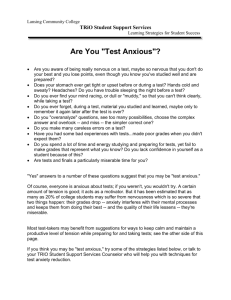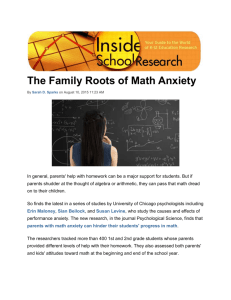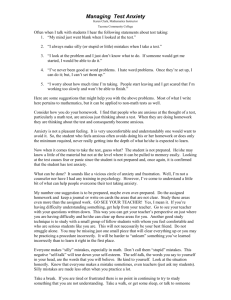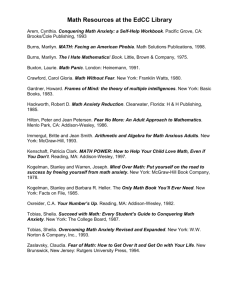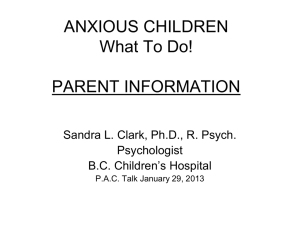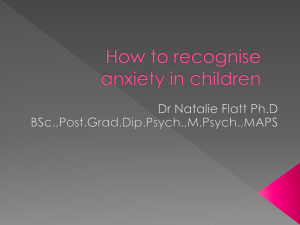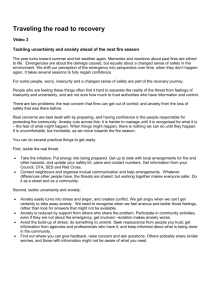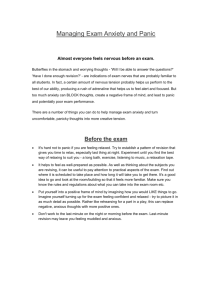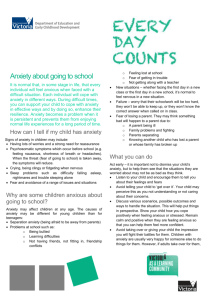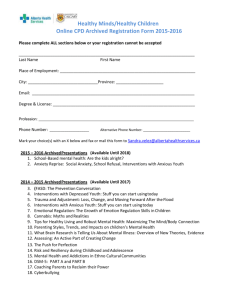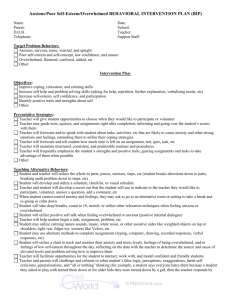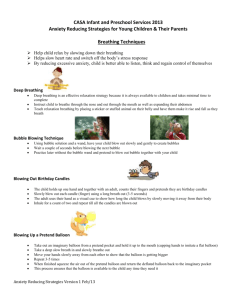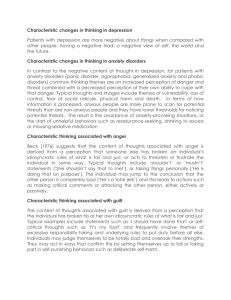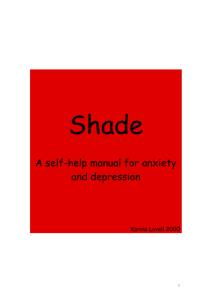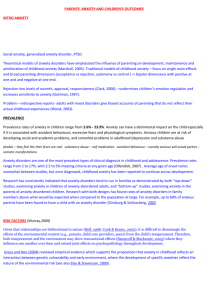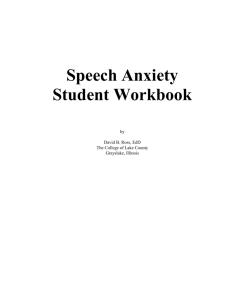5 Ways to Help Reduce Your Child`s Anxiety
advertisement
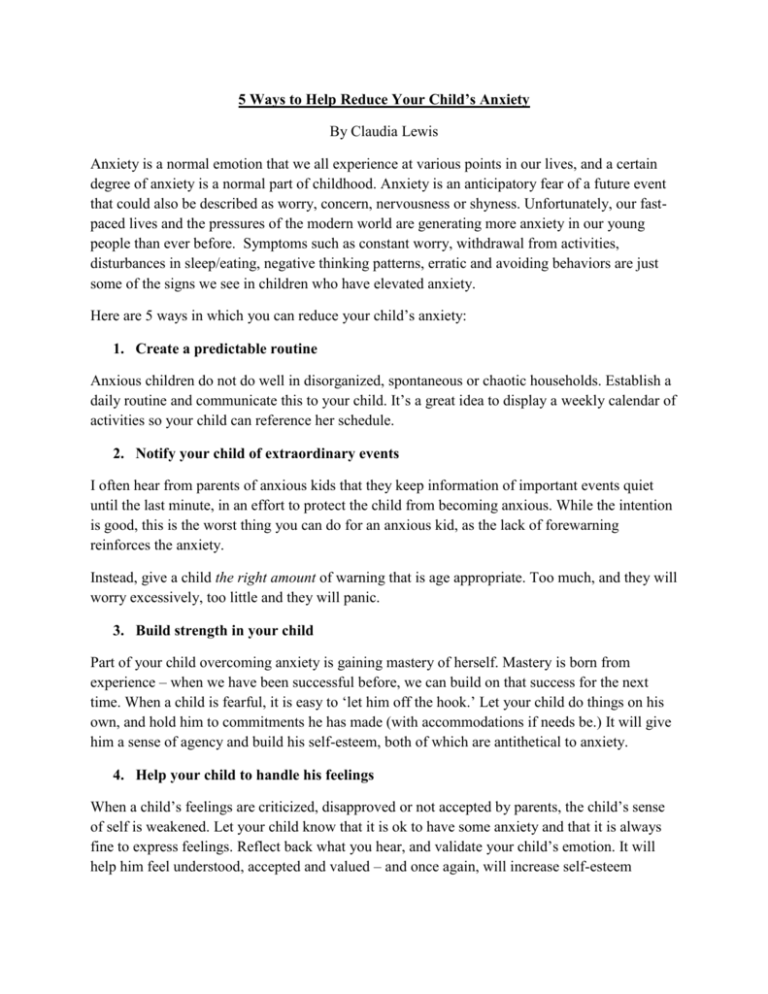
5 Ways to Help Reduce Your Child’s Anxiety By Claudia Lewis Anxiety is a normal emotion that we all experience at various points in our lives, and a certain degree of anxiety is a normal part of childhood. Anxiety is an anticipatory fear of a future event that could also be described as worry, concern, nervousness or shyness. Unfortunately, our fastpaced lives and the pressures of the modern world are generating more anxiety in our young people than ever before. Symptoms such as constant worry, withdrawal from activities, disturbances in sleep/eating, negative thinking patterns, erratic and avoiding behaviors are just some of the signs we see in children who have elevated anxiety. Here are 5 ways in which you can reduce your child’s anxiety: 1. Create a predictable routine Anxious children do not do well in disorganized, spontaneous or chaotic households. Establish a daily routine and communicate this to your child. It’s a great idea to display a weekly calendar of activities so your child can reference her schedule. 2. Notify your child of extraordinary events I often hear from parents of anxious kids that they keep information of important events quiet until the last minute, in an effort to protect the child from becoming anxious. While the intention is good, this is the worst thing you can do for an anxious kid, as the lack of forewarning reinforces the anxiety. Instead, give a child the right amount of warning that is age appropriate. Too much, and they will worry excessively, too little and they will panic. 3. Build strength in your child Part of your child overcoming anxiety is gaining mastery of herself. Mastery is born from experience – when we have been successful before, we can build on that success for the next time. When a child is fearful, it is easy to ‘let him off the hook.’ Let your child do things on his own, and hold him to commitments he has made (with accommodations if needs be.) It will give him a sense of agency and build his self-esteem, both of which are antithetical to anxiety. 4. Help your child to handle his feelings When a child’s feelings are criticized, disapproved or not accepted by parents, the child’s sense of self is weakened. Let your child know that it is ok to have some anxiety and that it is always fine to express feelings. Reflect back what you hear, and validate your child’s emotion. It will help him feel understood, accepted and valued – and once again, will increase self-esteem 5. Teach relaxation I strongly recommend teaching your child relaxation and breathing techniques (article coming soon), to activate the parasympathetic nervous system and physiologically calm your child. It can also be helpful to find regulating activities that she enjoys and engage her in them during highly anxious times. Some parental support may be necessary. Questions? Need support? Let me know how I can help you. I have experience helping both adults and children cope with anxiety using relaxation, thought stopping and resource installation.
